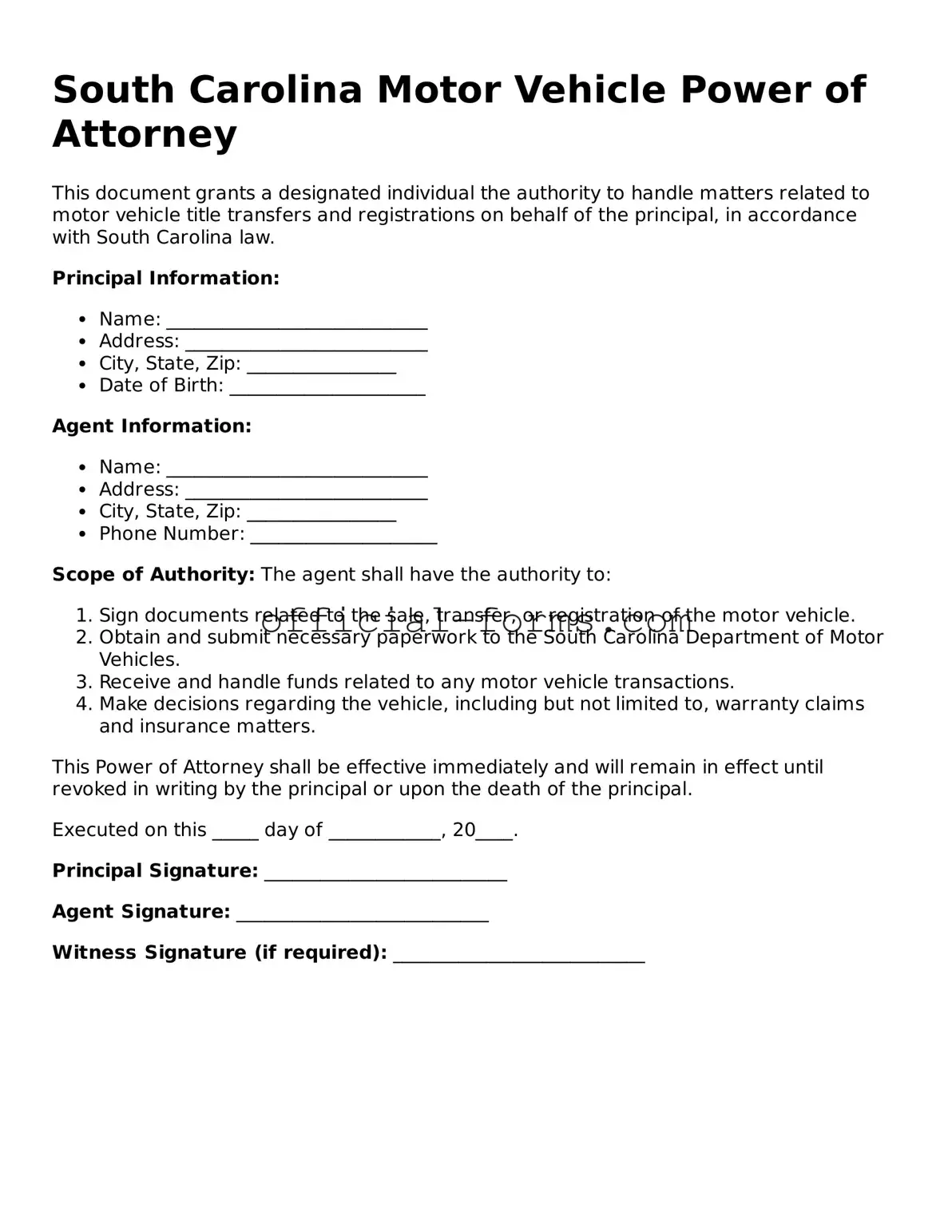Official South Carolina Motor Vehicle Power of Attorney Document
The South Carolina Motor Vehicle Power of Attorney form is a legal document that allows an individual, known as the principal, to designate another person, called the agent, to handle specific tasks related to their motor vehicle. This form can be particularly useful when the principal is unable to be present for transactions such as buying, selling, or registering a vehicle. By granting this authority, the principal ensures that their interests are represented effectively in matters concerning their vehicle.
Open My Motor Vehicle Power of Attorney Now

Official South Carolina Motor Vehicle Power of Attorney Document
Open My Motor Vehicle Power of Attorney Now
Don’t leave your form incomplete
Finish Motor Vehicle Power of Attorney online quickly from start to download.
Open My Motor Vehicle Power of Attorney Now
or
➤ PDF
